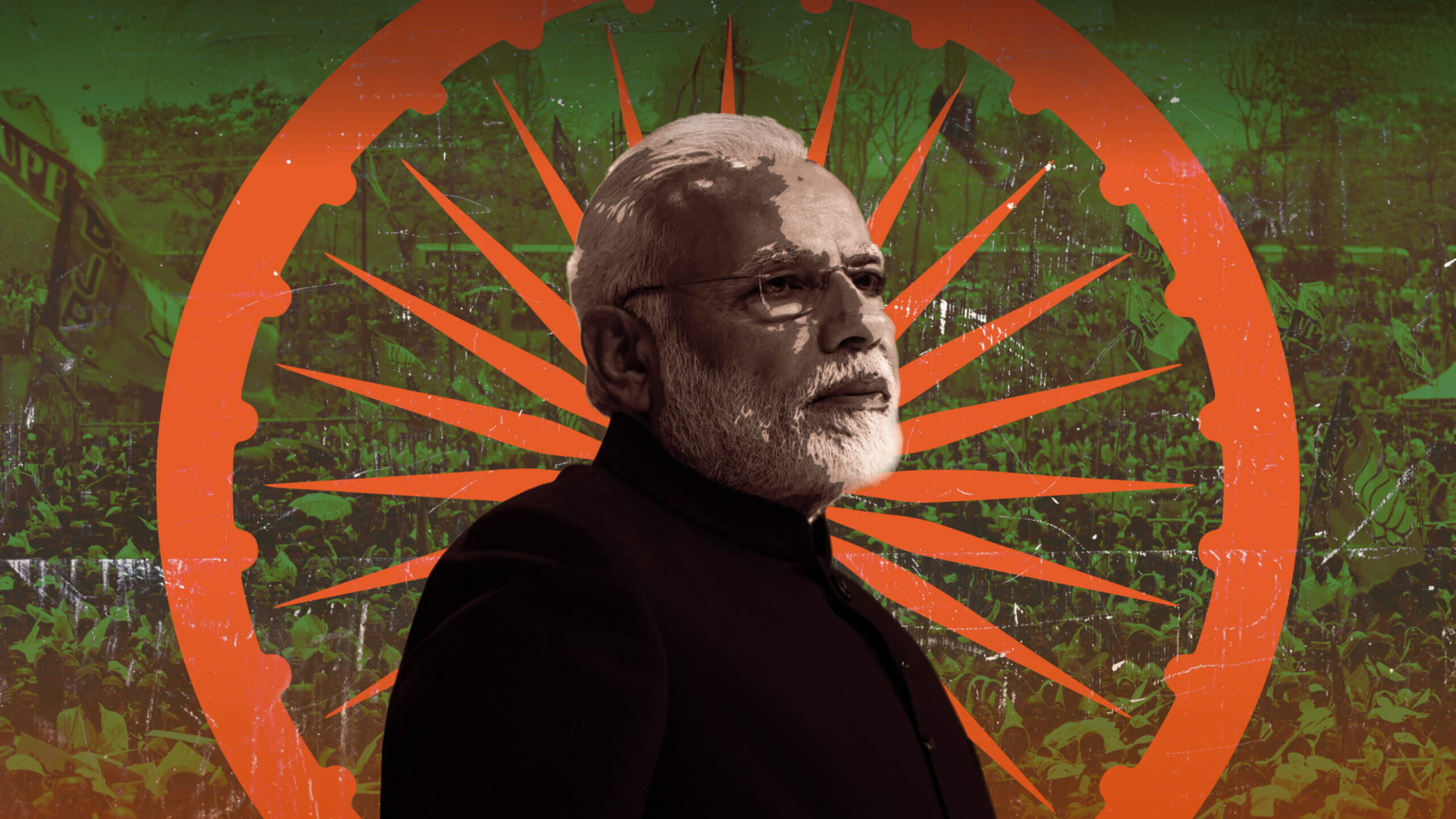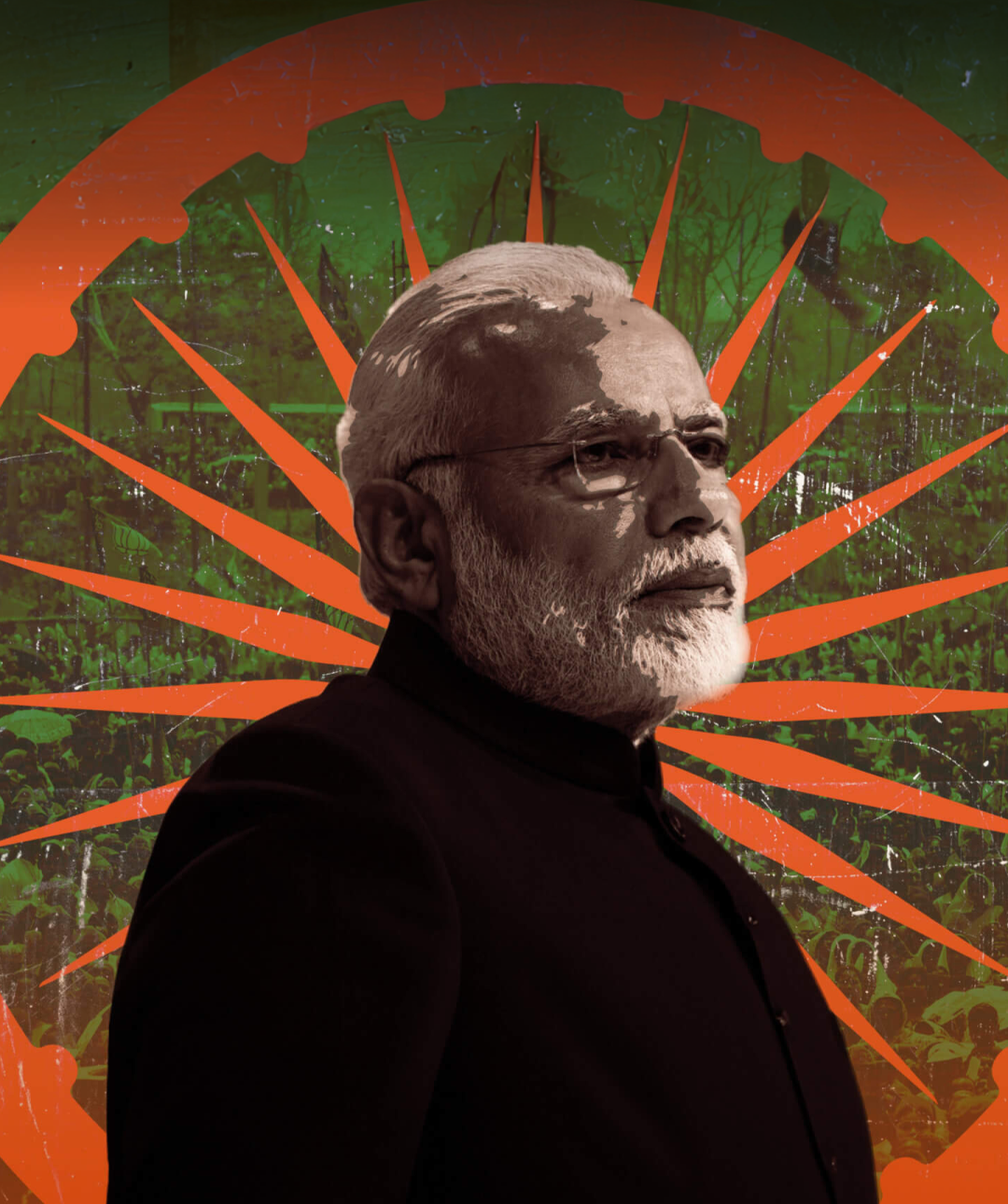

India has recently concluded the world’s largest electoral exercise, with some 640 million voters casting their ballots over seven weeks beginning on April 19. Last month, Prime Minister Narendra Modi was confirmed for a third term, making him the second prime minister in Indian history to win three consecutive terms since 1962. He was able to do so with the help of the National Democratic Alliance (NDA), after his Bharatiya Janata Party (BJP) failed to secure the 272 minimum seats needed for a majority. This is a major setback as the party had passed the threshold on its own in the previous two elections.
During the election campaign, Modi ambitiously eyed securing 400 out of 543 seats — a goal that would’ve surpassed their victory in 2019 by 63 seats. But BJP fell short of an outright majority, securing only 240 seats of the 272 needed in the Lok Sabha. Despite underperforming expectations, the BJP remains the largest party in parliament, securing its victory through its alliance with the NDA, a coalition of several right-leaning political parties.
Modi first took power in 2014 with a promise to boost economic development and crack down on corruption. His leadership has entrenched Hindutva — the idea that the Indian national identity and culture are inseparable from Hinduism — as the guiding political ideology in the constitutionally secular country. Modi himself is a prominent member of the Rashtriya Swayamsevak Sangh (RSS), a broad paramilitary volunteer organization that has been at the forefront of promoting Hindutva and Hindu supremacy in India. He has aggressively promoted Hindu-first policies that favor Hindus while excluding Muslims and other minority groups.
The rise of Hindutva and the Hindu nationalist sentiments it encapsulates have divided India along ethno-religious lines, with discriminatory laws and policies that marginalize minority communities, particularly Muslims. Modi’s regime has fostered the misleading narrative that Muslims are a threat to Hindus, often portraying them as outsiders or “illegal immigrants.” According to the Armed Conflict Location and Event Data Project (ACLED), violence targeting civilians constitutes over half of all political violence between Hindus and Muslims in recent years. More than two-thirds of such violence has been perpetrated by Hindu mobs targeting Muslim individuals. Moreover, an independent research project, Hindutva Watch, reported that during the first half of 2023, anti-Muslim hate speech was recorded, with around 80% of these events taking place in the BJP-ruled states and territories. The report suggests that the BJP employed anti-Muslim rhetoric and hate speech as a strategy to boost its electoral prospects, with significant support from the RSS.
Modi has codified the systematic discrimination against Muslims through measures such as stripping the Muslim-majority region of Jammu and Kashmir of its autonomy, subjugating it to the central government; passing the Citizenship Amendment Act (CAA), which grants citizenships to religious minorities from neighboring countries, including Hindus, Sikhs, Buddhists, and Jains, while excluding Muslims, and introducing an anti-conversion law aimed at harassing and persecuting Muslims and Christians. The Modi regime has attempted to physically erase the presence of Muslims in the country. In January, just three months before the polls, Modi inaugurated a Hindu temple on the site of a historical mosque that was destroyed by Hindu mobs in 1992, an incident that triggered riots and led to the deaths of more than 2,000 people, primarily Muslims.
The anti-Muslim rhetoric didn’t abate during his election campaign. At a rally in the western state of Rajasthan, Modi provoked tensions by referring to Muslims as “infiltrators” who have “more children” and claimed that if the main opposition, the Indian National Congress (INC), won, Muslims would “have the first right over the nation’s wealth.”
Modi also escalated his crackdown on political opponents ahead of the elections. Since taking office, prominent opposition figures have been persistently hounded with spurious corruption charges. In March, Arvind Kejriwal, the Delhi chief minister and national convenor of the Aam Aadmi Party (AAP), was arrested on corruption allegations. During the peak of the campaign, a BJP leader seized the opportunity to file a defamation case against Kejriwal after he accused the BJP of attempting to poach AAP leaders. Until today, Kejriwal has remained behind bars. At the same time, INC had its bank accounts frozen after being accused of failing to file tax returns for cash donations, which prevented it from accessing its campaign funds.
Throughout the country, supporters of the ruling BJP allegedly collaborated with local officials to suppress voter turnout or to disqualify opposition candidates entirely from the ballot. For example, in Surat, a city in the overwhelmingly Hindu state of Gujarat, the election was decided before voting could even take place. Eight opposition candidates withdrew under dubious circumstances, prompting local officials to declare the BJP candidate the winner by default. The Indian officials were also accused of using intimidation tactics against Muslim voters, such as police violence and coercion by the village chief and police, who reportedly pressured voters to support the ruling BJP.
The BJP’s poor performance is particularly surprising given Modi’s consistent efforts to weaken the opposition and marginalize various groups of the population. This unexpected result will force Modi to rely more heavily on coalition partners and, hopefully, shift away from his Hindu nationalist agenda to ensure human rights for all groups and minorities.
Hit enter to search or ESC to close